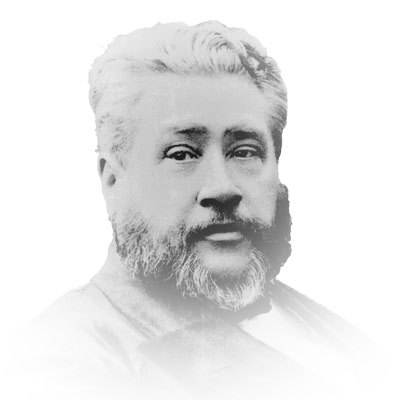In the last chapter, we were introduced to Obadiah who later in his life worked in the hostile court of the evil King Ahab. In this chapter, Spurgeon discusses the early piety of Obadiah. In 1 Kings 18:12, during his exchange with Elijah, Obadiah states:
“…but I thy servant fear the LORD from my youth. [1 Kings 18:12 KJV]”
The Bible does not tell us how Obadiah came to faith or who instructed him. Spurgeon does postulate that based on Obadiah’s name (which means “the servant of Jehova”) that Obadiah’s parents were likely believers. In a time when believers in God were frequently persecuted or even killed, the fact that Obadiah’s parents would name their son “the servant of Jehova” speaks to the faith of his parents and supports Spurgeon’s contention that they were likely believer. On the importance of parents, Spurgeon notes:
“Whether this be so or not [that Obadiah’s parents were believers], it is quite certain that thousands of the most intelligent believers owe their first bent towards godliness to the sweet associations of home…we were consecrated to the service of God before we knew that there was a God. Many a tear of earnest prayer fell on our infant brow and sealed us for Heaven; we were nursed in the atmosphere of devotion; there was scarce a day in which we were not urged to be faithful servants of God, and entreated while we were yet young to seek Jesus and give our hearts to Him.”
Spurgeon also notes from the scripture passage the unique manner in which Obadiah refers to his faith from youth. Specifically, Obadiah indicates that he has feared the Lord from his youth. This is quite different than many people describe a child’s relationship with God. Spurgeon explains:
“The way in which he described it is very instructive, ‘I thy servant fear the Lord from my youth.’ I hardly remember in all my life to have heard the piety of children described in ordinary conversation by this term, though it is the common word of the Scriptures. We say, ‘The dear child loved God.’ We talk of their ‘being made so happy,’ and so forth, and I do not question the rightness of the language; still, the Holy Spirit speaks of ‘the fear of the Lord’ as ‘the beginning of wisdom;’ and David says, ‘Come, ye children, hearken unto me: I will teach you the fear of the Lord.’ Children will get great joy through faith in the Lord Jesus; but that joy, if true, is full of lowly reverence and awe of the Lord.”
Indeed, even in childhood faith in the Lord and love of the Lord will ultimately manifest itself in fear of the Lord. And, as those who disciple children, we should not neglect the fear of the Lord in teaching them.
Our goal in Children’s Ministry is to bring young children to a saving knowledge of Jesus Christ. Spurgeon notes the numerous advantages of coming to early faith:
- Those saved early can be saved from “a thousand regrets” that those saved later in life will have experienced before their salvation.
- Early piety allows a person to form associations and friendships early in life that will benefit the individual for their entire lives. Indeed, the company we keep has a significant impact on our entire lives. As a result, early piety saves us from harmful associations.
- Early piety helps us to form godly habits and avoid the opposite.
- Early piety allows us to grow more rapidly in grace without having to “unlearn” much of what others have learned.
Spurgeon expands on this last benefit:
“The scars and bleeding sores which come of having spent years in the service of the devil are missed by those whom the Lord brings into His church before they have wandered far into the world.”
The benefits of salvation are clear to those who have been saved. As someone who came Jesus later in life (at aged 30), I understand that God had a reason for waiting until that point in my life to draw me to him. On the other hand, I sometimes find myself wondering how things in my life would be different had I come to Christ earlier in life.
As one final benefit of an early belief in Christ, Spurgeon notes that oftentimes it is the light of faith in a child that will help to bring older individuals to faith:
“By a certain secret power it opens closed doors, and turns the key in the lock of unbelief. Where nothing else could win a way for truth, a child’s love has done it.”
The benefits of a child coming to Christ early in life are clear. As workers in Children’s Ministry, we should never adopt the attitude that says “what we are teaching them now will help in their coming to Christ later in life.” Instead our goal with these children should be immediate salvation.
Links to Complete Text
If you’re interested in reading the complete text of “Come Ye Children,” it can be found on at: http://www.spurgeon.org/misc/cyc.htm
The complete text of Chapter Eighteen can be found at: http://www.spurgeon.org/misc/cyc18.htm
<<LAST TIME: Chapter 17 – Witnesses for God Converted in Youth
Chapter 19 – Obadiah and Elijah: NEXT TIME>>


